Category: Democracy
Propaganda, and the suppression of dissent
rahnuma ahmed
I have not acquired any fortune but I have my paternal estate and the pension of a Subedar. This is enough for me. The people in my village seem to respect me, and are now fully satisfied with the ease and benefits they enjoy under British rule.
Thus wrote Sita Ram in From Sepoy to Subedar, first published in 1873, sixteen years after the first war of independence (the British still refer to it as the Indian Rebellion, or the Indian Mutiny).
Sita Ram wrote the manuscript at the bidding of his commanding officer Lieutenant-Colonel Norgate in 1861, his son passed it on to the Englishman; the manuscript is supposed to have been written in Awadhi, Norgate translated it into English. An Urdu translation is also heard to have surfaced the same year. Few copies are known to have been sold, until 1911 that is, when a Colonel Phillott created a new syllabus for Hindustani exams, taken by colonial officers to test their knowledge of the language. Phillott himself translated the book into Urdu, and from then onwards, the autobiography of Sita Ram, who worked in the Bengal Native Army of the East India Company for forty-eight years (1812 to 1860)—became a ‘key text’ for British officers. The book was still part of the curriculum in the 1940s, it was translated into Devanagari in the same decade; a new and illustrated edition of the book (Norgate’s English translation), was brought out by James Lunt, as late as 1970. Continue reading “Propaganda, and the suppression of dissent”
A Struggle for Democracy
ROMEL CHAKMA. PART-I: Is custodial killing heroic?
by rahnuma ahmed
Romel Chakma, 20 year-old HSC examinee and student leader of Pahari Chatra Parishad,
was picked up by army personnel on April 5, 2017. Allegedly tortured, he died in hospital two weeks later.

How does one restore dignity to the memory of a youth who was picked up and tortured, who died of torture, whose body was not handed over to family members for cremation, but burnt after pouring petrol and kerosene? Continue reading “ROMEL CHAKMA. PART-I: Is custodial killing heroic?”
A Shadow World perspective on the UK election
By Andrew Fienstein
Continue reading “A Shadow World perspective on the UK election”
Committe for Protection of Fundamental Rights: Digital Security Act and Citizens' Rights
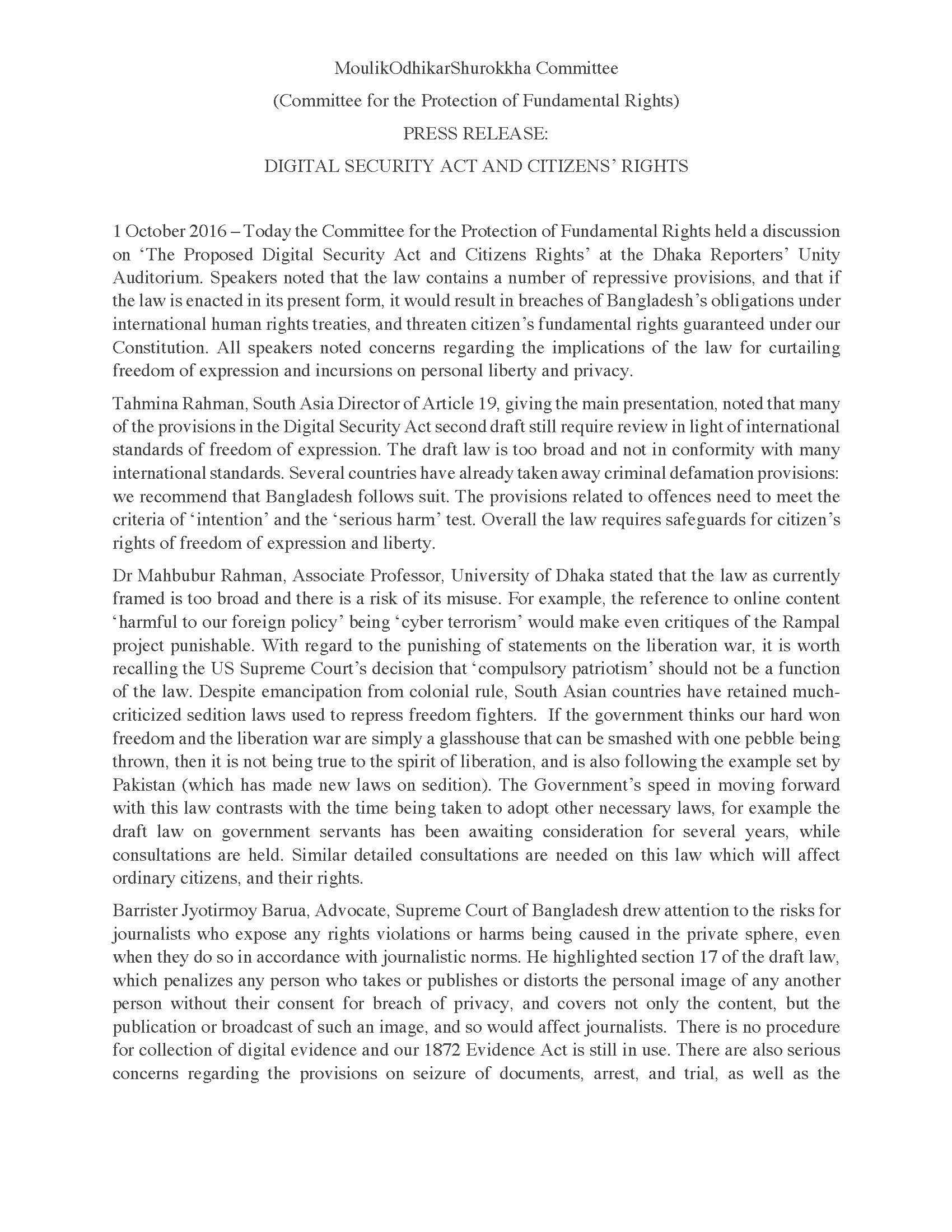
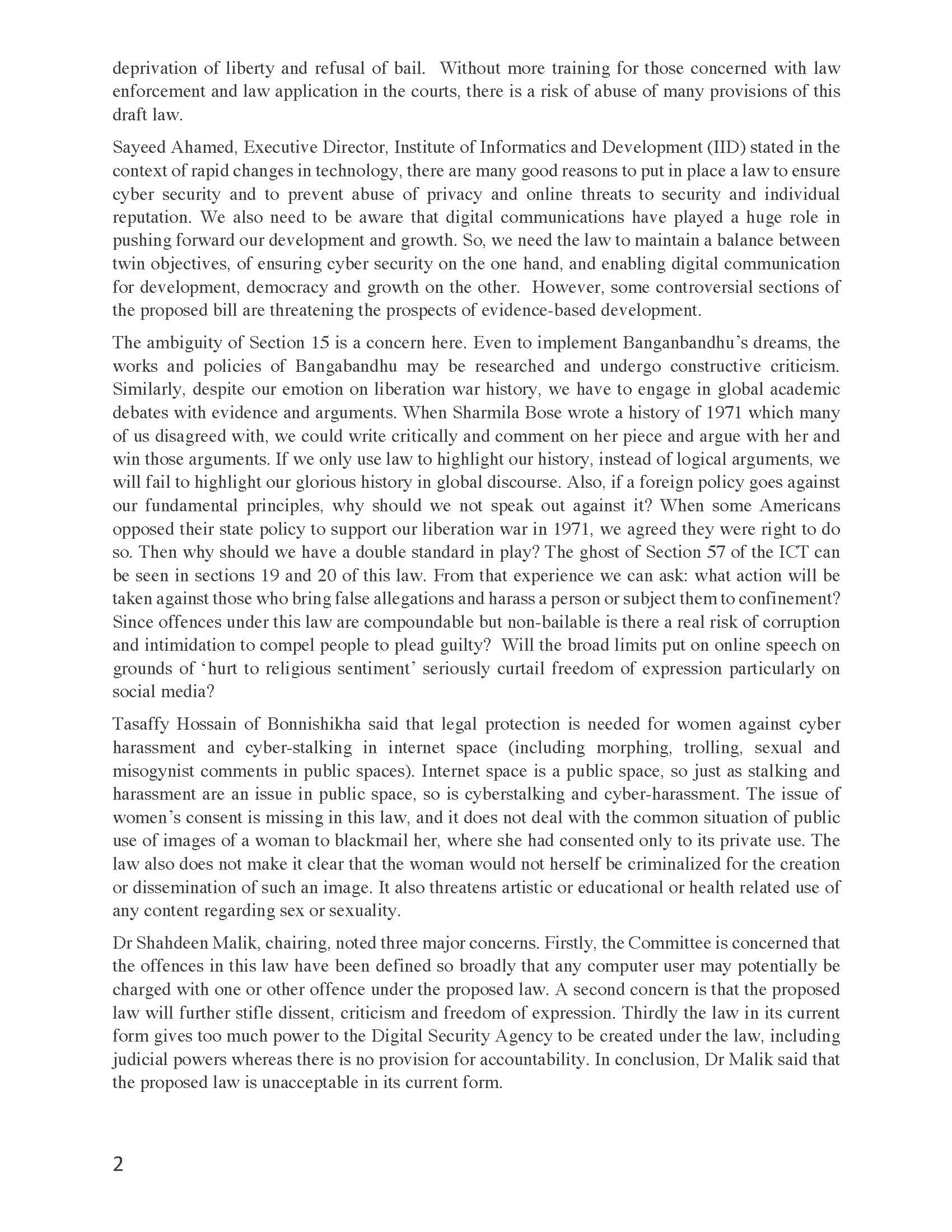
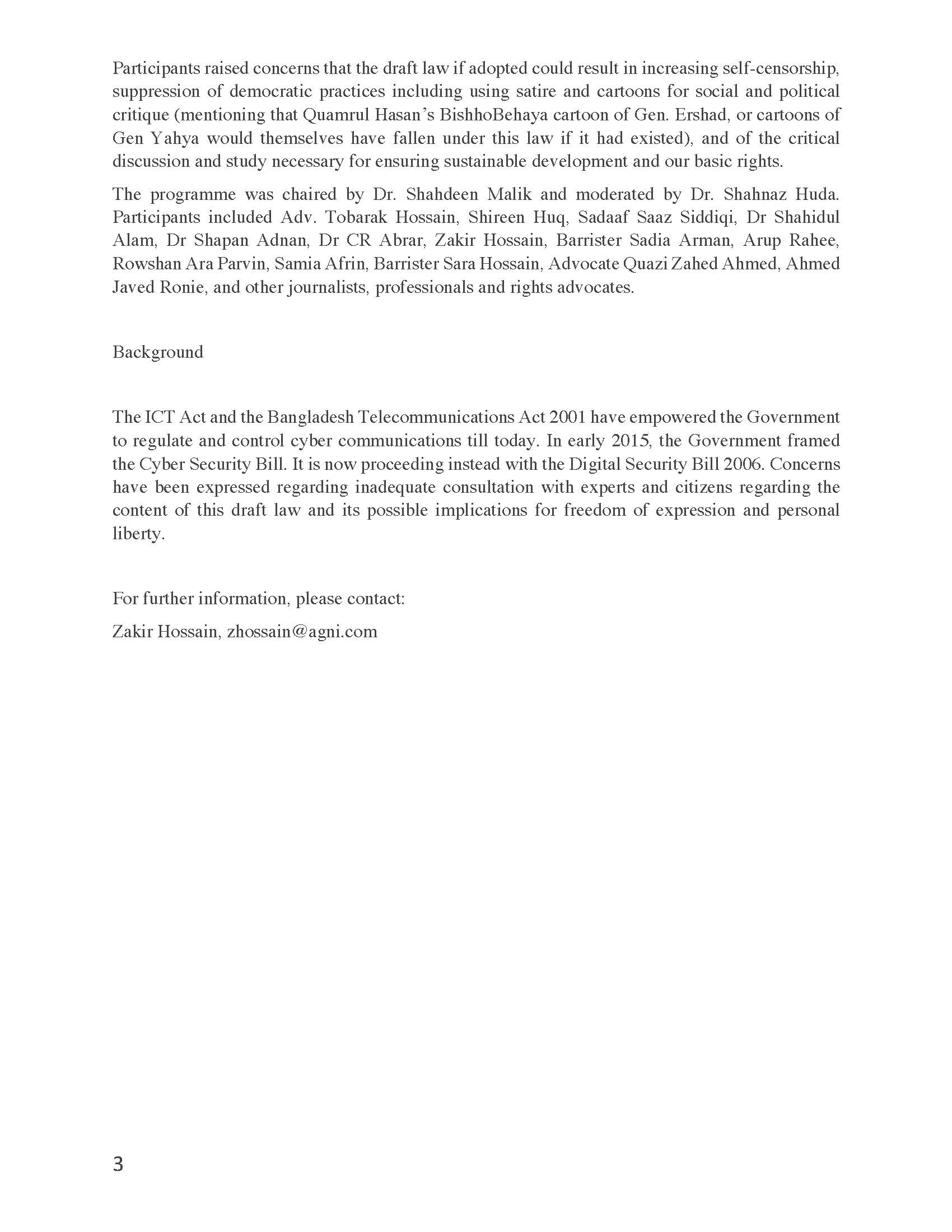
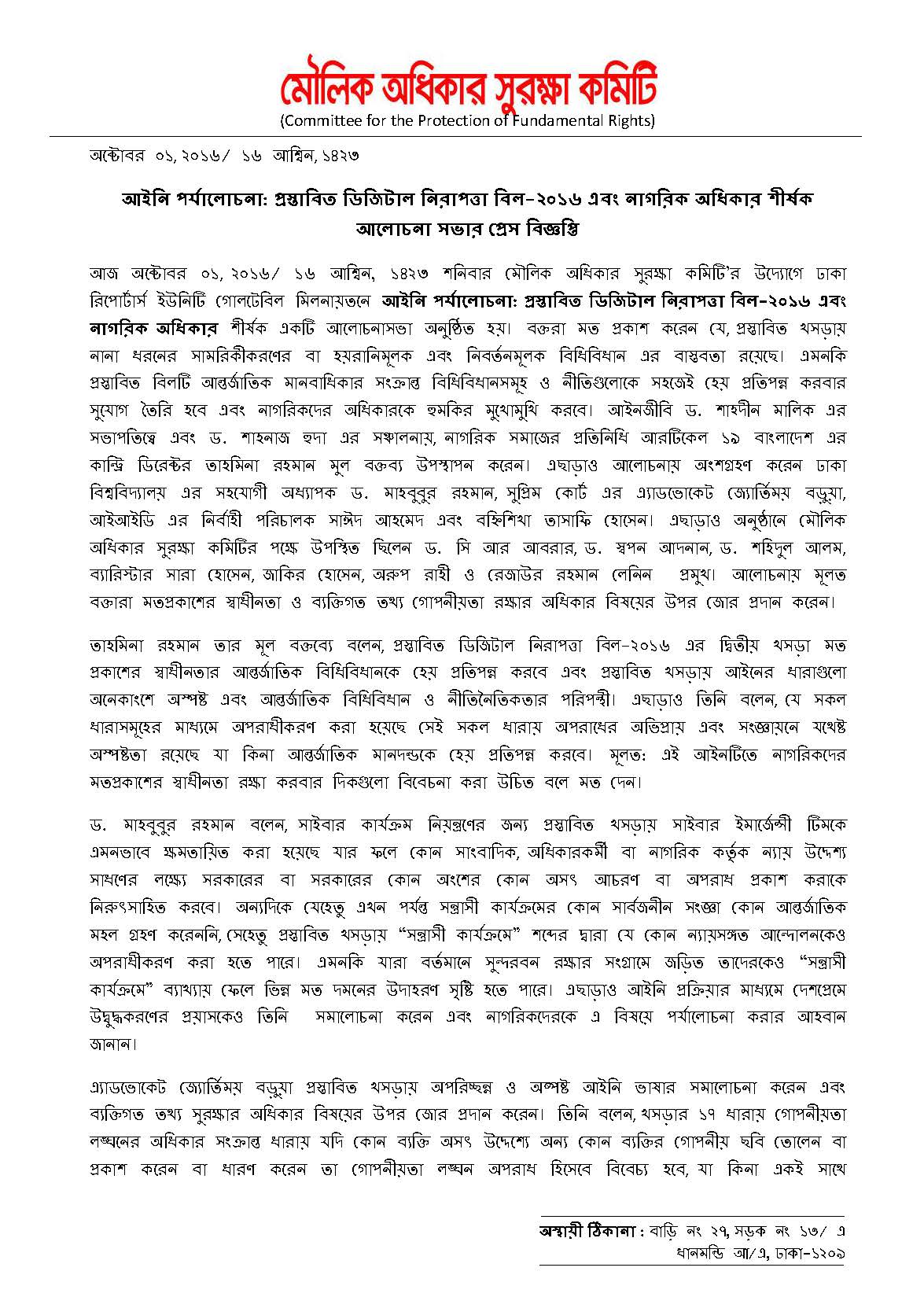
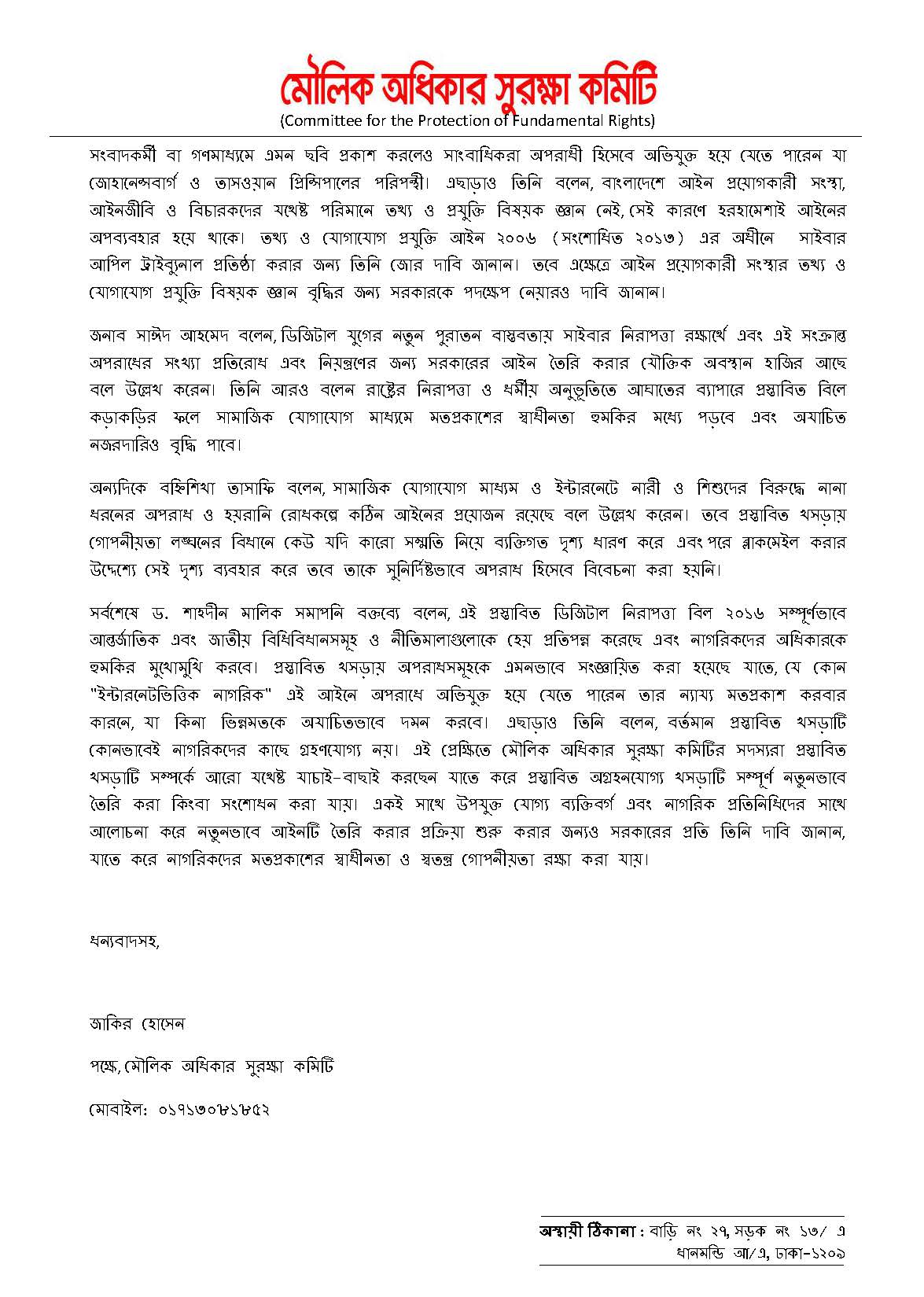
mosc_bangla-press_edited_-october-2016
english-press-release_mosc
Quelling anti-Rampal protests (with South Korean assistance)
rahnuma ahmed
It was a peaceful procession.
We had gathered under the aegis of the National Committee to Protect Oil, Gas, Mineral Resources, Power and Ports, outside the National Press Club in Dhaka, on October 19, 2016. After a brief rally, where speakers described the harm that the Rampal coal power plant would cause the Sundarbans, the world’s largest mangrove forest straddling both sides of the Bangladesh-India border, we formed a procession, raised slogans and proceeded toward the Indian High Commission in Gulshan to deliver an open letter for the Indian prime minister Narendra Modi.
Since India is the major partner in building the Maitree Super Thermal Power Project, i.e., the Rampal coal power plant, the National Committee’s open letter called on the Indian prime minister to scrap the project.
It’s not only us. Forty-one Indian people’s movements, green and civil rights organisations have called on Narendra Modi to scrap the the project. So has the Unesco and the International Union for the Conservation of Nature (IUCN). A Unesco statement recommended the ‘Rampal power plant project be cancelled and relocated to a more suitable location’ as it could damage the world heritage site, home to 450 Royal Bengal tigers, expose downriver forests to pollution and acid rain, threaten the breeding grounds of Ganges and Irrawaddy river dolphins, far worsen the already liminal ecosystem which is being threatened by rising sea levels (The Guardian, October 18, 2016). Three large French banks, including BNP Paribas, a sponsor of the Paris climate summit in 2015, have refused to invest, while two Norwegian pension funds have withdrawn their investment. Continue reading “Quelling anti-Rampal protests (with South Korean assistance)”
As Drik as Possible
Introduction to the Drik 2016 calendar.
A behind the scenes glimpse at a remarkable media phenomenon:
The dot matrix Olivetti printer was noisy. The XT computer came without a hard drive: two floppy disks uploaded the operating system. When the electricity went (as it often did), we had to reload it. Our bathroom doubled as our darkroom. A clunky metal cabinet housed our prints, slides, negatives and files. Md. Anisur Rahman and Abu Naser Siddique were our printers; I was photographer, manager, copy editor and part-time janitor. Cheryle Yin-Lo, an Australian who had read about us in a western magazine, joined as our librarian. We offered and she happily accepted a local salary.
HISTORY AS ETHICAL REMEMBRANCE
Dhaka University, Shaheed Minar and CP Gang’s ‘bessha’ banner
by Rahnuma Ahmed
![The online group CP Gang's banner reads (translated) 'Resist these so-called civil [society] liars and anti-Independence intellectual prostitutes in order to uphold the true history of the liberation war to the younger generation.' Those whose faces are crossed out are, from left to right, journalist Mahfuzullah, Dhaka University professors Asif Nazrul and Amena Mohsin, North South university professor Dilara Chowdhury, lawyer Tuhin Malik, writer and columnist Farhad Mazhar, Saptahik editor Golam Mortuza, New Age editor Nurul Kabir, and daily Manabzamin editor Motiur Rahman Chowdhury. A human chain at the Central Shaheed Minar organised by the Muktijoddha Sangsad Santan Command, Dhaka on October 17, 2014.](http://newagebd.net/wp-content/uploads/2015/11/0229.jpg)
THIS story begins with the sudden and unexpected death of professor Piash Karim on October 13, 2014, of cardiac arrest. Piash, who had returned to Dhaka in 2007 after teaching for nearly two decades at an American university, had joined BRAC University and was teaching in the department of economics and social sciences. Dr Amena Mohsin, professor of international relations at Dhaka University, and Piash Karim got married in March 2013; high-school student Drabir Karim, Piash’s son from his first marriage, was part of their family. Earlier known in his circle of friends for his left-leaning views, Piash gradually gravitated towards the Bangladesh Nationalist Party, a centrist party and the ruling Awami League’s arch-enemy. He began frequenting television talk shows, popular, as no real debate takes place in the parliament. (The popularity of TV talk shows has drastically declined, however, with the silent black-listing of dissident voices; a couple of analysts have reportedly left the country). His comment that the Ganajagaran Mancha, initially composed of a small group of bloggers and activists calling for the hanging of war criminals of 1971, later mushrooming into a sea of people at Shahbagh square in Dhaka city and spreading nationwide, was developing ‘fascist’ undertones, earned him widespread denunciation. The movement was then riding high. Continue reading “HISTORY AS ETHICAL REMEMBRANCE”
The Ruin of Indonesian Society
Indonesia: 50 Years After the Coup and the CIA Sponsored Terrorist Massacre. The Ruin of Indonesian Society

Last year, I stopped travelling to Indonesia. I simply did? I just could not bear being there, anymore. It was making me unwell. I felt psychologically and physically sick.
Indonesia has matured into perhaps the most corrupt country on Earth, and possibly into the most indoctrinated and compassionless place anywhere under the sun. Here, even the victims were not aware of their own conditions anymore. The victims felt shame, while the mass murderers were proudly bragging about all those horrendous killings and rapes they had committed. Genocidal cadres are all over the government. Continue reading “The Ruin of Indonesian Society”

